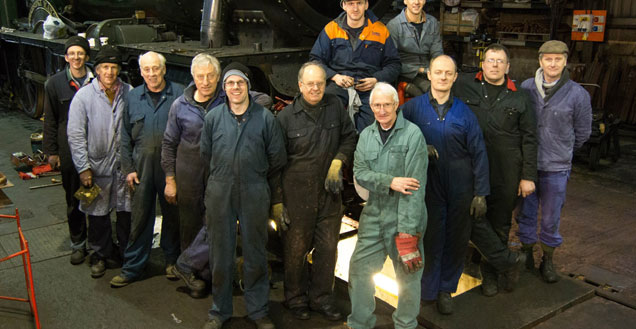Formed in 1973 EMF was successful in the rescue through fund raising and purchase of firstly Erlestoke Manor and later Bradley Manor from Woodham’s scrap yard in Barry, South Wales. Having been cast aside by British Railways as surplus and outmoded at the end of 1965, 7812 was rescued in 1974 and 7802 in 1979.

Below is a timeline of the evolution of both of our locomotives. If you would like to find out more please contact us or visit one of our events.

Formed in 1973 EMF was successful in the rescue through fund raising and purchase of firstly Erlestoke Manor and later Bradley Manor from Woodham’s scrap yard in Barry, South Wales. Having been cast aside by British Railways as surplus and outmoded at the end of 1965, 7812 was rescued in 1974 and 7802 in 1979.
Once saved the fund’s attention focussed on returning 7812 to working order an aim which was achieved in 1979. Initially purchased solely for spare parts the fund was encouraged to restore 7802 to working order a practical and financial feat which was achieved in 1993. Since then both locomotives have proved their usefulness in regular heritage railway service.
The fund is supported by several hundred like minded shareholders simply determined that the locomotives should have an active and useful future for as long as practically possible. So far this has been achieved without significant external subsidy or reliance on single large shareholding.
Active support is essential for the long term active future of the locomotives and the fund benefits from this in several different areas including fund raising, locomotive overhaul and maintenance as well as administration. These activities provide a wide range of opportunities for involvement and association with the locomotives. Importantly supporting the fund provides opportunities to pass on heritage engineering skills and gain useful other experience. There is also a social side to the fund either through meeting at regular working parties, visits to other railways with or without our locomotives and social events.
Sign up & stay up to date with events, news & competitions